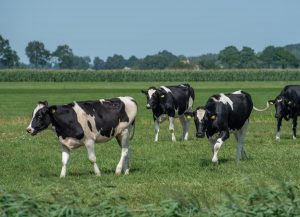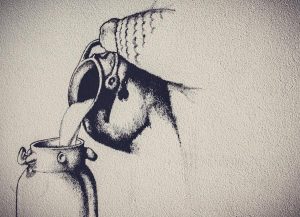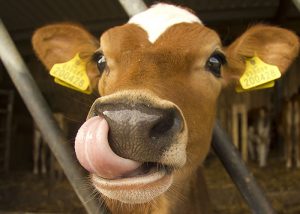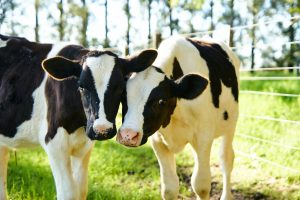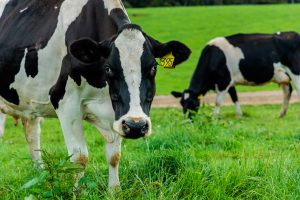María Villagrasa & Fernando Diaz
During the first weeks of life the calf’s dam, in addition to offering food and care for their young, provides them with information about their physical and social environment in order to ensure their survival. Numerous studies indicate that massaging is beneficial for premature babies: it reduces their stress and may promote weight gains.
Thus, with the objective of a sustainable production system, but without losing sight of the welfare of calves, a group of researchers from the Chinese Academy of Agricultural Science in Beijing (Wang et al., 2020), hypothesized that the licking (grooming) of the cow towards its calf can have the beneficial effects of a massage and that it can be artificially imitated, in this case, by manual brushing.
The researchers distributed 33 newborn calves in two groups, with and without brushing. Manual brushing was done for five minutes twice a day and focused on the calf’s neck and back. His behavior was observed over six days during the evening feeding. The parameters under study were: level of activity, affinity towards people and time of ingestion of the starter feed.
Groomed calves had more interactions with people
The main results and conclusions obtained were as follows:
- The calves that received brushing exhibited a higher level of activity, which was reflected mainly in an increase in the behavior of racing and jumping. Such playful behavior is a good indicator of well-being in young mammals.
- All individuals in the experiment received a limited amount of daily milk; groomed calves showed more suction and object-licking behaviors compared to control calves which could be explained by their reduced fear of interacting with people.
- The percentage of calves that ingested the starter feed on day 6 tended to be higher in the calves that were brushed than the control calves (64.7 vs. 37.5%). Early consumption of concentrate is critical for the development of an active and functional rumen that will allow early weaning of calves and therefore will have positive effects on the growth and productive performance of animals.
- Groomed calves were more playful and had more interactions with people. Achieving a good human-animal relationship is important to reduce animal stress responses to routine management practices, and therefore improve animal welfare status.
Conclusions
From these results, the authors stated that artificial grooming in the first days of life of Holstein calves could be very beneficial in reducing their fear and therefore increasing their playful activity and showing greater affinity towards people. On the other hand, such treatment is likely to accelerate the consumption of solid food by the calves which would have a positive impact on their growth.
References
Li, C., Wang, J., Jin, S., Gu, X. 2020. Artificial Grooming during Early Life could Boost the Activity and Human Affinity of Holstein Female Calves. Animals. 10:302.
© 2021 Dellait Dairy Knowledge Center. All Rights Reserved.



